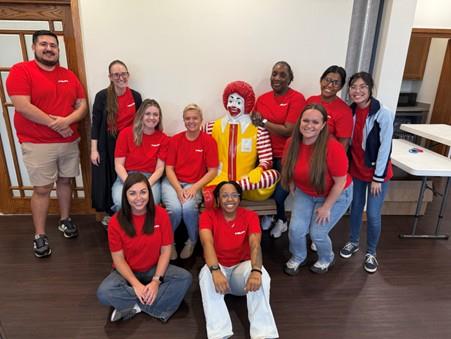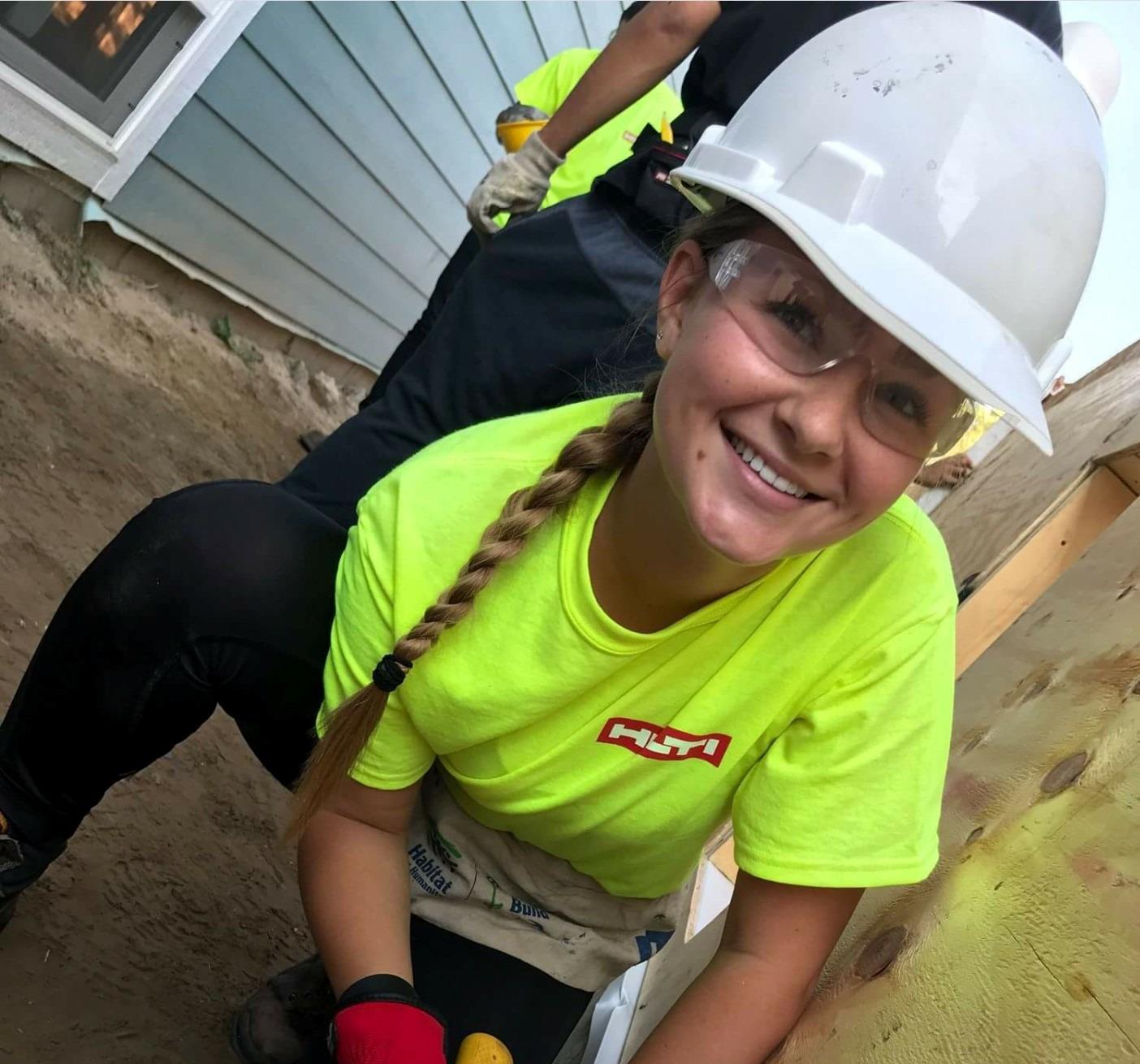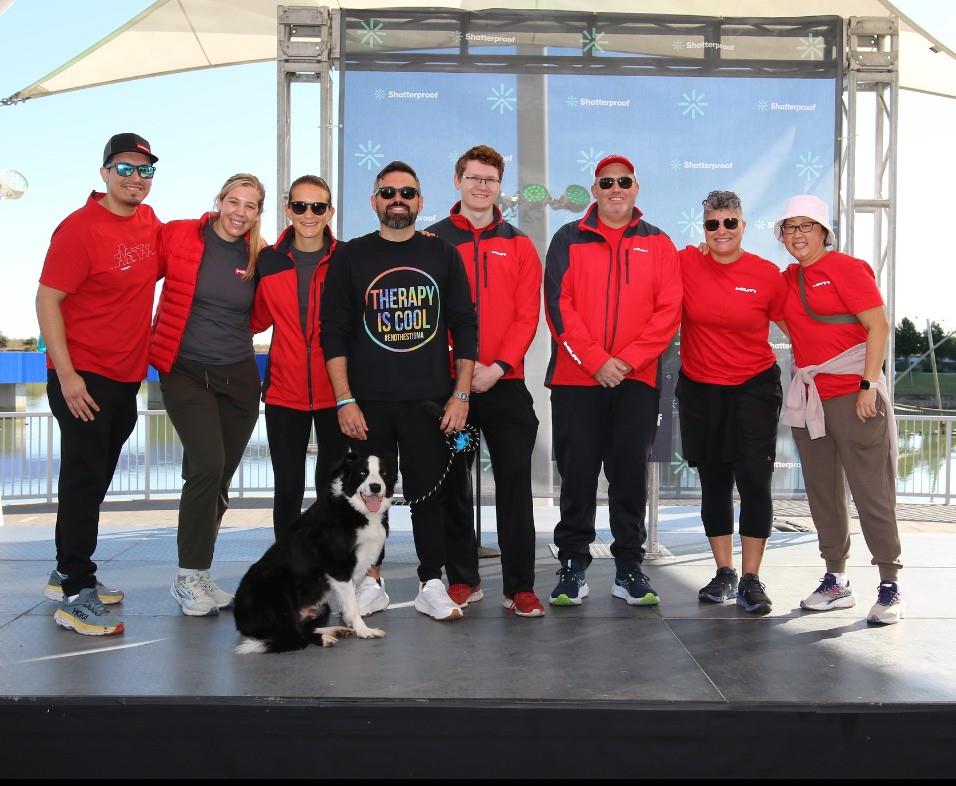
Tell Me Your Story: Using Language to Build Connection

Voy a decirles un cuento.
I love stories. I love reading them, and I love creating them. For me, storytelling is about connection. I want to understand worlds and perspectives that are different from mine: who are you? What drives you? What makes us different? What do we share? What’s your story?
From Books to Bilingual: My Early Love for Language
As a kid, my love of storytelling meant scrambling up a tree with my nose in a book until dinnertime. But as I got older, I discovered a new passion: language. I began studying Spanish in school, and for the first time I encountered how much language shapes our ability to express ourselves and to connect with others. My study of Spanish expanded my vocabulary while also expanding my worldview as I explored the history behind certain words, idioms and even slang.
My passion for the Spanish language carried me into a Spanish major at university, where I had the opportunity to both live and study in the wonderful communities of Madrid, Spain and Cusco, Peru. I was flying high: Finalmente, soy bilingüe!

Working on a jobsite as an Account Manager.
From Classroom to Construction: A New Chapter
And then…life happened. Classes stopped. I went to graduate school and started working. Years passed and I was no longer using my Spanish on a regular basis. I stopped dreaming in Spanish and began to forget some of the grammatical rules. Ser vs. estar? Por vs. para? I started to feel embarrassed about the ground I’d lost, and my growing nervousness held me back from practicing even when I had the chance.
Around this same time, I was embarking on another unexpected chapter: accepting an opportunity with Hilti and joining the construction industry. At first, I felt like a fish out of water. I could barely hang a picture on my wall, let alone help a customer select the right pins for their BX3. I was intimidated by this new world and nervous about my ability to support our customers’ needs.
I had been working in a Hilti Store in the Chicago area for a few months when I got my first Spanish-speaking customer. The customer asked me, in Spanish, to help them arrange a repair of a Hilti decking tool. At first, I froze. What if I made a mistake? What if I embarrassed myself?
The truth is, I did make mistakes. I stumbled over verb conjugations, forgot some words, and mispronounced others. And the other truth is that those mistakes didn’t really matter because they didn’t keep us from communicating, and more importantly, from connecting. My customer wasn’t giving me a grammar test, they were trying to get their DX tool fixed. In that goal we were partners.
Even though this interaction made me uncomfortable in the moment, it boosted my confidence. That customer was working a large job near the Hilti Store and came in often. Over time, we went from organizing repairs and pin refills to chatting about life and family. I still occasionally stumbled over my words, but you don’t need perfect vocabulary to demonstrate genuine interest and build trust. This customer ended up inviting me to visit their jobsite so I could get hands-on learning about the work they were doing and demonstrate a few of Hilti’s innovative new products. The connection we were able to establish through shared language turned into a win-win opportunity for both Hilti and my customer.

Taken on a jobsite as an Account Manager.
Finding Community Through Language
I took this experience with me to future roles at Hilti. As an account manager, I took more chances to use Spanish to connect with my Spanish-speaking customers. Across jobsites, manufacturing plants and offices, I worried less about using el subjuntivo correctly (ojalá que lo domine algún día!) and more about how I could build authentic, trusting connections with my customers. I learned that a genuine effort to build a personal connection could develop into a mutually beneficial partnership.
As I moved into corporate roles, I was happy to learn that I could still use my passion for languages as a point of development and connection. At Hilti’s headquarters in Plano, Texas, I got plugged in to the Unidos Latinx Employee Resource Group. Through this group, I found a wonderful community of other Spanish speakers and a safe place to practice my language skills. I met colleagues who grew into friends that met weekly for café en español, helping me to develop personally and professionally and holding me accountable to keep practicing my Spanish.
Ultimately, I’ve learned that connecting with others isn’t about having an expansive vocabulary, knowing when to use el pretérito vs. el imperfecto, or never making mistakes. Connecting via language is about cultural empathy, authentic interest and trust-building. Knowing that I might make a mistake – and being willing to try anyways – has been an important part of my personal growth. I cherish the relationships I’ve been able to strengthen through my second language skills, and I’m inspired to keep trying to learn new languages, mistakes and all.
Nervous to Use Your Second Language? Do It Anyway.
If you speak a second language (or have always wanted to learn) but are nervous to use it, I’d encourage you to put yourself out there and give it a try. Hilti is full of multilingual team members who would likely be delighted to practice with you, teach you or even learn from you. And we serve fantastic multilingual customers all across the globe, many of whom appreciate a chance to connect in their native language. Your language skills might be just the key that unlocks a rewarding partnership to help our customers achieve their productivity, safety and sustainability goals.
Language skills are a powerful tool on the jobsite – and not only for building connection. Language is also an important safety tool, as information about jobsite hazards needs to be communicated quickly and understood effectively. Many contractors have noted foreign language skills gap as a key challenge facing the industry today, and they expect the gap to widen1. And while Spanish is a prevalent language on jobsites – in 2020, 30% of construction workers were Hispanic2 – the construction industry is highly diverse, and language skills from all over the world are needed. Check out the opportunities open at Hilti today, and come join a world of diverse experiences, lifelong learning and deep connection.
Charlemagne put it best: “To have another language is to possess a second soul.” So, what are you waiting for? Tell us your story!

Working in the snow.
Join a Team Where Languages and Stories Matter: Explore Hilti Opportunities
At Hilti, we recognize the value of a multilingual workforce on job sites and beyond. Ready to bring your language skills to a local and global stage? Explore exciting career opportunities across North America and around the world: Jobs | Hilti Careers
1https://www.constructiondive.com/news/report-construction-faces-widest-foreign-language-skills-gap/563621/
2https://www.bls.gov/spotlight/2022/the-construction-industry-labor-force-2003-to-2020/home.htm

